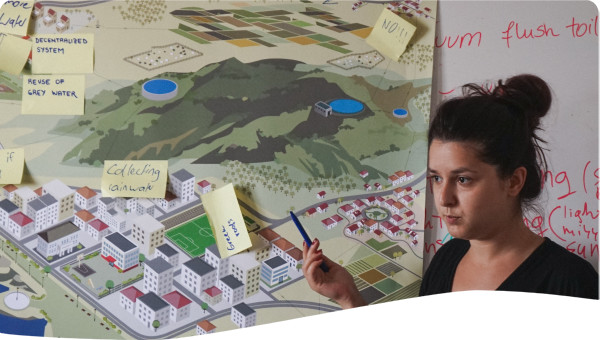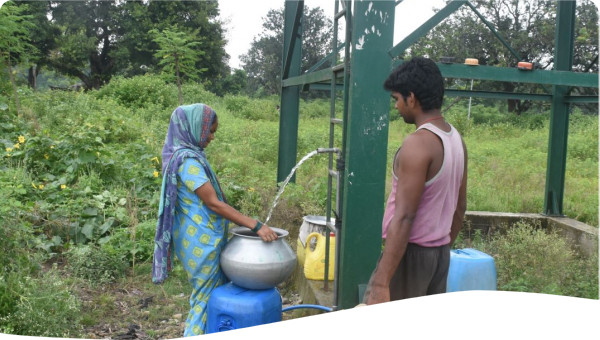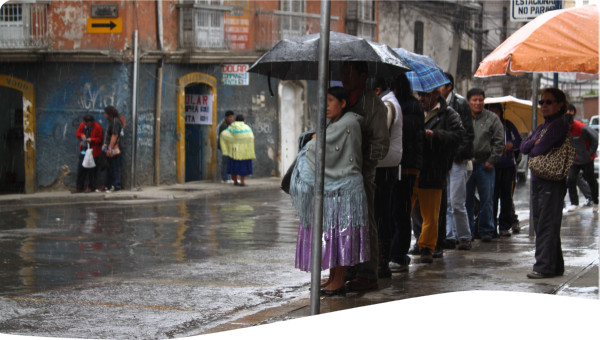The gender environment and climate strategy aims to address in an integrated manner the gender perspective in the water sector, with a view to improving the quality of life of the population particularly women and communities through mitigation and adaptation to climate change and the sustainable use of water resources. ARA-Sul, IP, officially known as the Regional Administration of Southern Waters in Mozambique, holds a critical mandate in the management of water resources. To address the challenges identified, ARA-Sul, IP took a number of actions aimed at empowering women and local communities while enhancing climate resilience and the sustainable use of natural resources.
ARA-Sul, IP, officially known as the Regional Administration of Southern Waters in Mozambique, holds a critical mandate in the management of water resources. As a legally independent entity with administrative and financial autonomy, it operates within the category A services sphere. The operational mandate of ARA-Sul, IP spans approximately one thousand square kilometers, encompassing the provinces of Maputo, Gaza, and Inhambane. Within this expansive territory lies the responsibility for managing water resources and critical hydraulic infrastructure, including the Pequenos Libombos, Corumana, Massingir, and Macarretane Dams.
An examination of ARA-Sul, IP's internal composition reveals a gender imbalance within its workforce. Among its 351 employees, a mere 23% are women, while a substantial 77% are men. This disparity not only highlights gender-related concerns but also underscores the need for a more equitable work environment.
ARA-Sul, IP has several pivotal responsibilities, including:
- Ensuring the integrated and sustainable management of water resources in the southern region of the country.
- Implementing hydro-climatological monitoring systems to activate early warning mechanisms against floods and droughts.
- Registering and licensing all raw water uses and exploitations.
- Crafting strategies for the allocation, management, and operation of hydraulic infrastructures.
Within the landscape of ARA-Sul, IP's mission, gender dynamics and environmental concerns intersect with various sectors, especially water resource management. This intersection drives the institution's strategies and actions, including:
- Empowering women and local communities through access to technologies and initiatives for climate change mitigation and adaptation, as well as the sustainable utilization of water resources.
- Fostering training and empowerment programs for women, equipping them with the skills necessary for sustainable water resource management and proficiency in technologies for climate change adaptation and mitigation.
- Promoting the development and dissemination of cost-effective technologies among women and communities, enhancing water resource management and ensuring access to clean drinking water.
- Encouraging participation, training, and capacity-building initiatives to bolster the involvement of women and communities in water resource management.
ARA-Sul's operations are structured across multiple divisions, each focused on managing specific river basins. These divisions play a crucial role in overseeing the management of water resources in their respective areas, a task made challenging by the variable nature of annual runoff, which can range from 15,000 Mm3 per year to extreme fluctuations during floods or droughts.
To address the challenges identified, ARA-Sul, IP took a number of actions aimed at empowering women and local communities while enhancing climate resilience and the sustainable use of natural resources.
Women Empowerment
One pivotal strategy was to actively involve women in the design and execution of climate change and water resource sustainability projects. This inclusivity extended to tasks such as drafting contract tender documents and overseeing construction works for water retention infrastructures, with a specific focus on gender equality and equity considerations. The institution also ensured gender parity in the maintenance processes and vigilantly monitored the safety of hydraulic infrastructures.
To bolster women's capabilities, ARA-Sul, IP initiated comprehensive training and empowerment programs. These initiatives equipped women with the knowledge and skills necessary for the sustainable management of water resources, along with proficiency in technologies for adapting to and mitigating climate change impacts. Notably, training encompassed critical areas like dike inspection using digital platforms and the exchange of expertise in dike management.
Community Empowerment
ARA-Sul, IP collaborated closely with the National Disaster Management Institute to establish local flood risk management committees in communities along the Limpopo River. Some of these committees, predominantly managed by women, played an integral role in monitoring alert levels and bolstering community resilience.
The institution engaged communities in the design and implementation of climate change-related projects, emphasizing the shared benefits of accessing and controlling mitigation and adaptation technologies. Public consultations were conducted as a precursor to project implementation, and partnerships with local governments were forged to identify suitable sites for reservoirs. Furthermore, management committees for dams and reservoirs were established to ensure the sustainable maintenance and protection from infrastructure damages.
Climate Change Adaptation and Mitigation
Awareness campaigns were conducted to educate communities about the installation of telemetry networks and early warning systems. The aim was to foster community involvement in safeguarding critical infrastructures and preventing vandalism.
ARA-Sul, IP actively promoted the early warning system's implementation and the dissemination of weather and seasonal forecasts during local management committee meetings. Low-cost technologies for water resource management and ensuring access to clean drinking water were developed and shared with women and communities. These initiatives included the application of water capture and pumping technologies through solar panels, the installation of systems for capturing water from reservoirs, and the encouragement of drip irrigation systems to harness water from rivers and dams.
Additionally, efforts were made to enhance the efficiency of water storage systems. Rainwater storage was promoted, and small dams and reservoirs were constructed and rehabilitated. A comprehensive construction plan outlined establishment of more small dams and the excavation of reservoirs with capacities of up to 100,000 cubic meters.
Participation, Training, and Capacity Building
Local risk management committees were established in the Limpopo and Save regions, with a deliberate emphasis on women's participation. Additionally, an external emergency plan for Corumana Dam was implemented, guaranteeing women's inclusion in emergency forums. Technical simulations were conducted in preparation for the rainy season, equipping both men and women with the skills needed to respond effectively to cyclones and natural disasters.
The efforts undertaken by ARA-Sul, IP have yielded several outcomes, furthering the organization's mission to enhance water resource management and climate resilience in the region.
As part of these initiatives, at least 2 women at ARA-Sul, IP have been skillfully trained in Q-Fiel technology. They have acquired expertise in maintaining flood defense dams and have honed their skills in dike inspection, utilizing digital platforms. This training has facilitated the exchange of experiences in dike management, empowering these women for their pivotal roles in water resource management.
Additionally, ARA-Sul, IP has made great progress in establishing robust governance structures. Specifically, 26 reservoir management committees have been established across the four river basins. This signifies a substantial improvement in local participation and decision-making processes. Remarkably, five of these committees are now under the leadership of women, demonstrating a commitment to inclusive governance.
The organization has further solidified its operational framework by instituting seven basin committees. These committees serve as crucial coordination mechanisms at the basin level, fostering cooperation and efficient water resource management practices.
Local women have been empowered with critical knowledge through specialized training programs focused on climate change and sustainable water resource management. These initiatives equip women to actively address environmental challenges, contributing to long-term resilience within their communities.
To enhance community safety, local women have also received training in operating the warning system and disseminating weather and seasonal forecasts. This preparedness training not only ensures the safety of the community but also enables timely responses to climatic fluctuations and potential hazards.
Empowering women and involving them in leadership roles not only promotes gender equity but also leads to more effective and equitable governance structures. In addition, facilitating the exchange of experiences among stakeholders, especially in technical fields like dike management and flood defense, can significantly enhance expertise.
While progress has been made, there is a need for continued efforts to design effective strategies that further elevate the involvement of women as active users and decision-makers. The current participation of at least one woman in basin committee meetings signifies progress, but addressing this challenge comprehensively remains essential to achieving truly inclusive and equitable governance.
 Case studies
Case studies



